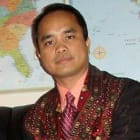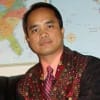commentary Commentary
Commentary: Can Aung San Suu Kyi’s NLD win again despite not delivering many of its promises?
There are four major issues on the minds of voters in this election - the Rohingya crisis, peace with ethnic minorities, a constitutional amendment and the economy, say Dr Nehginpao Kipgen.
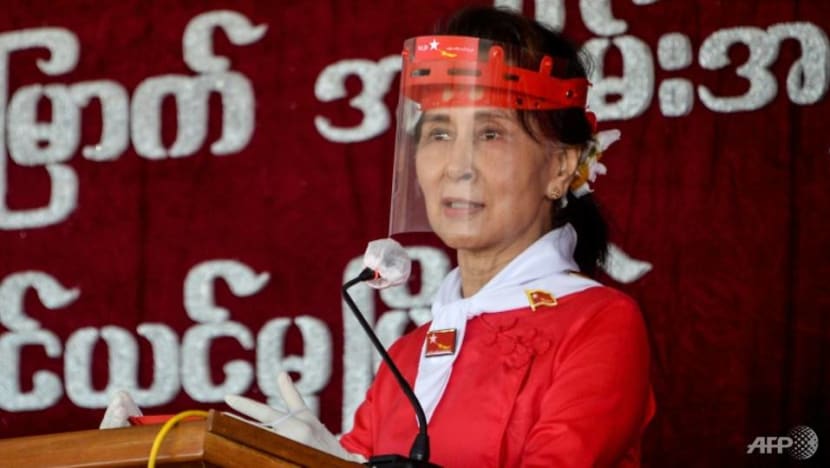
Myanmar's political leader Aung San Suu Kyi is widely expected to be returned to power in the November 8 election, but observers have raised questions about the credibility of the polls AFP/Thet Aung
NEW DELHI: Myanmar will hold a general election on Nov 8 to elect members of the national parliament, state and regional legislatures. Over 90 political parties are in the fray for a total of 1,171 seats.
There are four major issues on the minds of voters in this election - the Rohingya crisis, peace process with the country’s ethnic minorities, a constitutional amendment, and economy.
Despite its missteps or failures on these issues, the National League for Democracy (NLD) is likely to win the election largely because it is the only party perceived to be formidable against the military establishment, as well as the party to stand up to international criticism.
ROHINGYA CRISIS
The single most international criticism of the NLD government in the past few years has been its policy toward the Rohingya community.
Among others, Myanmar is under scrutiny by the International Court of Justice (ICJ) and the International Criminal Court (ICC) over the issue. There was a great expectation from Aung San Suu Kyi and her government to deliver some concrete solutions.
However, apart from signing a bilateral agreement with Bangladesh on repatriation and a memorandum of understanding with two agencies – the United Nations High Commissioner for Refugees (UNHCR) and the United Nations Development Programme (UNDP) - there has not been much progress on the ground.
READ: Commentary: Southeast Asia is now dominant in the illegal drugs trade
The NLD government has the chance to amend some of its international image during the upcoming election but this seems to be a far cry now.
Instead, to please its voters, the NLD government has not filed any Rohingya Muslim candidate for the election. In fact, the Union Election Commission has disqualified Muslim candidates enmasse - the latest victim was Aye Win of the Democracy and Human Rights Party from the Rakhine state who was disqualified in the first week of this month although he had been declared eligible earlier.
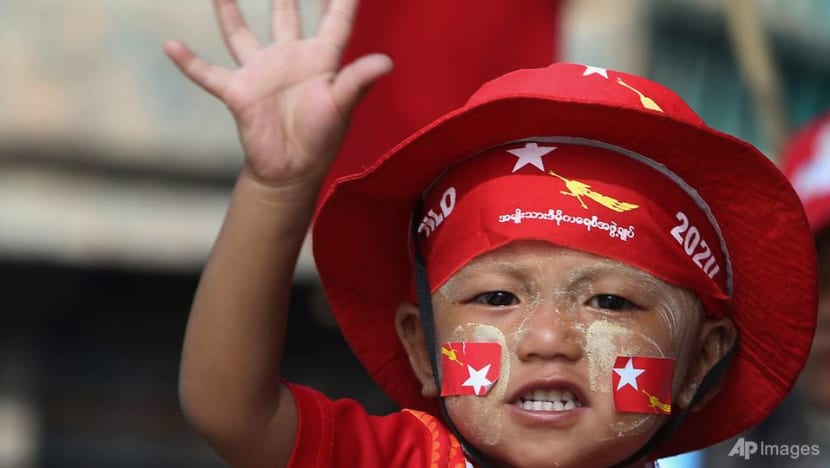
There is a general negative perception of the Rohingyas, especially among the Bama or Burman majority ethnic group, as interlopers, and therefore, should not be accepted as full citizens of Myanmar. This view is widely shared by many in the NLD government.
Despite the severe criticism from the international community including human rights groups, many voters have faith that Aung San Suu Kyi and her NLD government will address the issue.
One evidence of such support were the massive rallies during the ICJ’s hearing late last year, and the grand reception the state counselor received upon her return from the Hague.
PEACE SETTLEMENT
When the NLD came into power in 2016, one of its publicly announced priorities was peace with the ethnic armed groups through the Nationwide Ceasefire Agreement (NCA), which was initiated by the Union Solidarity and Development Party (USDP) government in 2011.
READ: Commentary: Myanmar’s 2020 elections a major test for Aung San Suu Kyi
The USDP government, under President Thein Sein, was able to reach a ceasefire agreement with eight ethnic armed groups as they believed that it was serious about finding a solution to the decades-old armed conflict in the country.
For example, President Thein Sein made a pledge to make the issue of ethnic minorities a national priority by dropping the demand made by the previous military government that all ethnic armed groups become border guard forces.
Moreover, the government was willing to enter talks with the armed groups without any preconditions, which was not the case during the military regime.
There were a lot of expectations from the NLD government, which championed a pro-democracy agenda during the military years since its formation in 1988.
READ: Commentary: Has Myanmar been in denial over COVID-19 outbreak all this while?
Despite giving a considerable amount of time and effort, the government was only able to bring on board two armed groups - the New Mon State Party (NMSP) and the Lahu Democratic Union (LDU).
While the government and the military insisted on signing a bilateral agreement as a pathway to the NCA, the armed groups demanded that the government declares a nationwide ceasefire that will cover all armed groups.
Moreover, the NLD government and the military has been unwilling to engage all armed groups, especially the Arakan Army (AA), which has engaged in ongoing armed conflicts.
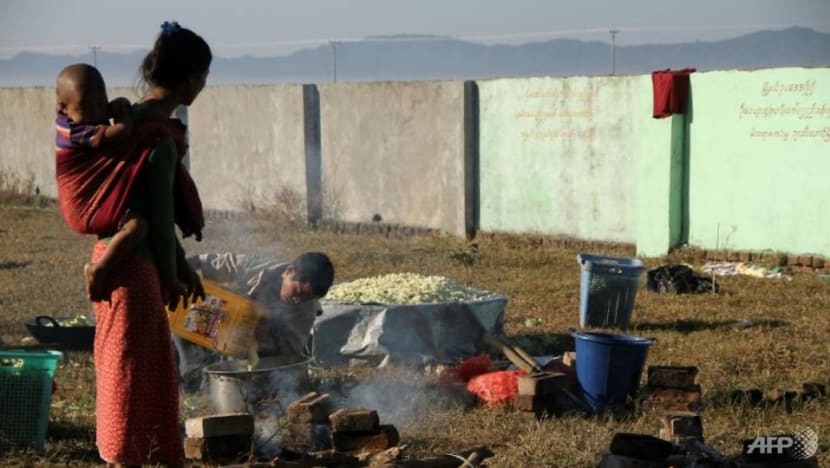
Alarmingly, this has led a bigger and stronger AA and more ongoing armed conflicts between the armed group and the Myanmar security forces in parts of the Rakhine and Chin states.
The more glaring development is the extrajudicial killings and the increasing number of Internally Displaced Persons (IDPs).
But despite the NLD government’s failure to make significant progress, it continues to show a commitment toward finding a durable solution with the country’s ethnic minorities.
For instance, among other initiatives, the NLD government organised the fourth session of the Union Peace Conference of the 21st Century Panglong in August this year.
It was attended by different stakeholders including representatives of the armed groups, the military, political parties, and the government, after holding the conference from 2016 to 2018.
This year’s conference closed with the signing of the third part of the Union Accord.
Many voters still seem to believe the NLD government can take the peace process forward.
CONSTITUTIONAL AMENDMENT
One other priority for the NLD government is a constitutional amendment.
READ: Commentary: International law has its limits in protecting the Rohingya in Myanmar
To its credit, the NLD has put forth amendment proposals including reducing the role of the military in politics, abolishing the military chief’s right to take power during national emergency, and preventing anyone with a foreign spouse or children from becoming president.
Unfortunately the military representatives in the national parliament were united in opposing most of these proposals, though they were willing to support a constitutional amendment that would allow states and regions to choose or elect their own chief ministers.
In fact, with the support of the military-appointed lawmakers and ethnic parliamentarians, the opposition USDP sponsored such a bill in March to amend Article 261(b), which gave the president the power to appoint chief ministers in Myanmar’s 14 states and regions.
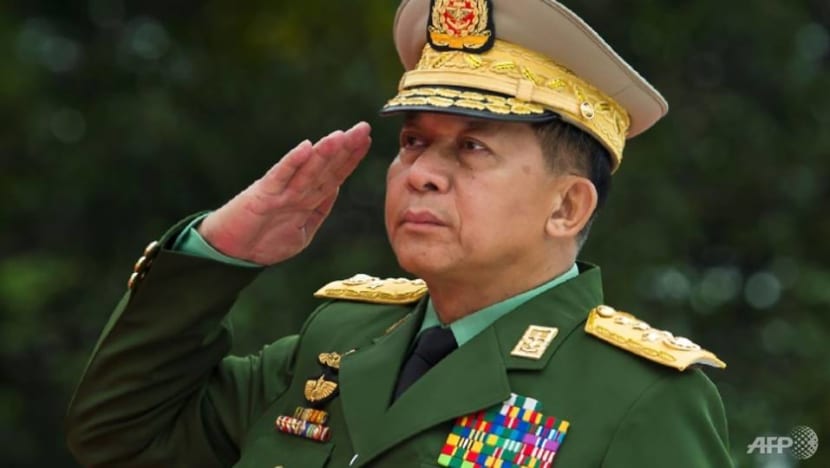
However, the NLD government did not support this constitutional amendment, without which the bill did not receive more than 75 per cent support required in parliament to pass.
Had the constitution been amended, it would have given more power to the ethnic minorities to choose their own leaders.
The NLD government blames the military and its supporters for failing to bring wide scale amendments to the constitution, and promises to try again if elected to power. Many voters will undoubtedly believe and continue to support such largely empty promises.
ECONOMY
Economic development was one other major agenda of the NLD government.
But as per the World Bank update on Oct 2, when Myanmar opened up to the international community in 2011 during the USDP government, there was a rapid economic growth of above 7 per cent per year and there were considerable improvements in social welfare.
And the poverty rate was almost halved, falling from 48 per cent to 25 per cent between 2005 and 2017.
READ: Commentary: Myanmar's COVID-19 cruise-ship moment as thousands of migrant workers flock back home
However, the economic growth momentum slowed down after the NLD government came into power in 2016 as it grappled with its economic vision and management strategies.
The government could not create a conducive, safe and convenient environment to attract foreign business and investments.
For example, investors were wary of obsolete or inadequate regulations, such as laws on foreign ownership, as well as insufficient infrastructure - primarily electricity, port infrastructure and inland transport to boost manufacturing and supply-chain activity.
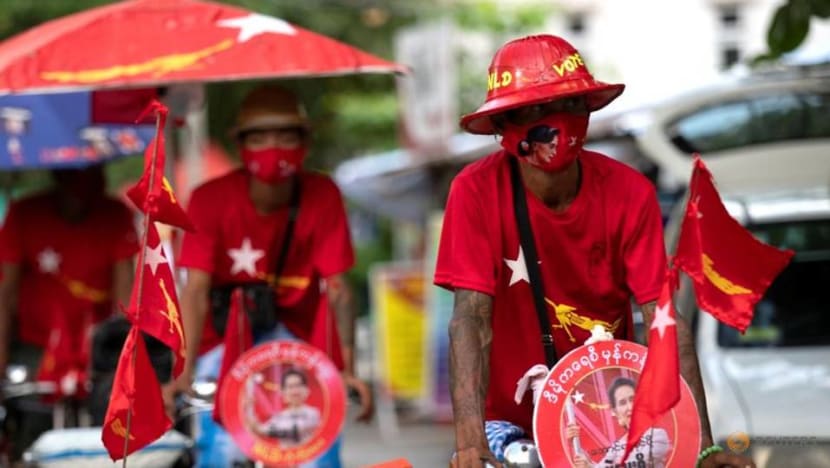
The government’s handling of the Rohingya issue was also a cause for concern for potential investors.
In an attempt to address the situation, the government initiated an ambitious Myanmar Sustainable Development Plan, which got disrupted in part by the COVID-19 pandemic.
Now, the economy is expected to contract by as much as 2.5 per cent for the fiscal year 2019 to 2020.
Moreover, the International Monetary Fund in its Jul 7 update said that economic growth had already been slowing down when the pandemic hit the country.
Though the economy is not doing well, this may change once the pandemic is over, and more importantly, if and when the government has the policy and strategy that is friendly and transparent to both local and foreign investors.
MINORITY AREAS
The NLD may likely face tougher electoral competition in the areas dominated by ethnic minorities.
Unlike the 2015 election, the minorities have taken certain steps to stand united in the upcoming election.
READ: Commentary: Myanmar doing rather well despite the Lady hauled to Hague for Rohingya's plight
One example is the merger of several smaller parties into six major groups - the Kachin State People’s Party, the Kayah State Democratic Party, the Karen National Democratic Party, the Chin National League for Democracy, the Mon Unity Party, and the Inn National Development Party - last year.
The ethnic minority parties’ inability to form a strong alternative to the NLD in the past has been due to a lack of unity among themselves. The coalition of parties may have allowed them to win more seats in the national parliament, state and regional legislatures.
However, a possible strong performance of ethnic parties has been hampered by the cancellation of elections in Rakhine, Kachin, Shan, Kayin and Mon states by the Union Election Commission on Oct 16.
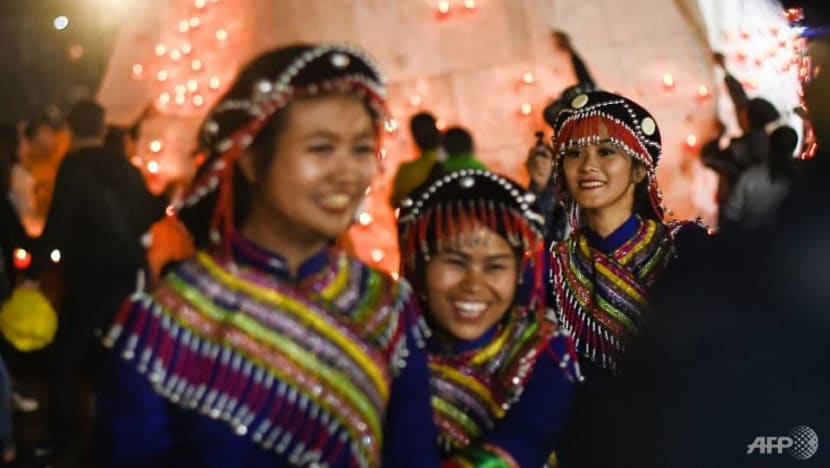
But despite the NLD government’s missteps or failures on major issues that matter to the country and voters, the party is likely to secure a majority in the national parliament.
Many voters, especially from the majority Bama ethnic group which forms almost two-thirds of the total population, still believe Aung San Suu Kyi and the NLD are the most formidable and viable party to challenge the military establishment, as well as the party to stand up against international criticism and pressure.
READ: Commentary: Proving Myanmar had genocidal intent is not straightforward
The bottom line, however, is that even if the NLD wins a majority, the election may not usher in a significant change with regard to the consolidation of democracy so long as the military, which among others holds 25 per cent of seats in all legislatures, wields considerable influence on Myanmar’s politics.
Dr Nehginpao Kipgen is a Political Scientist, Associate Professor, Assistant Dean and Executive Director at the Center for Southeast Asian Studies, Jindal School of International Affairs, O.P. Jindal Global University.








